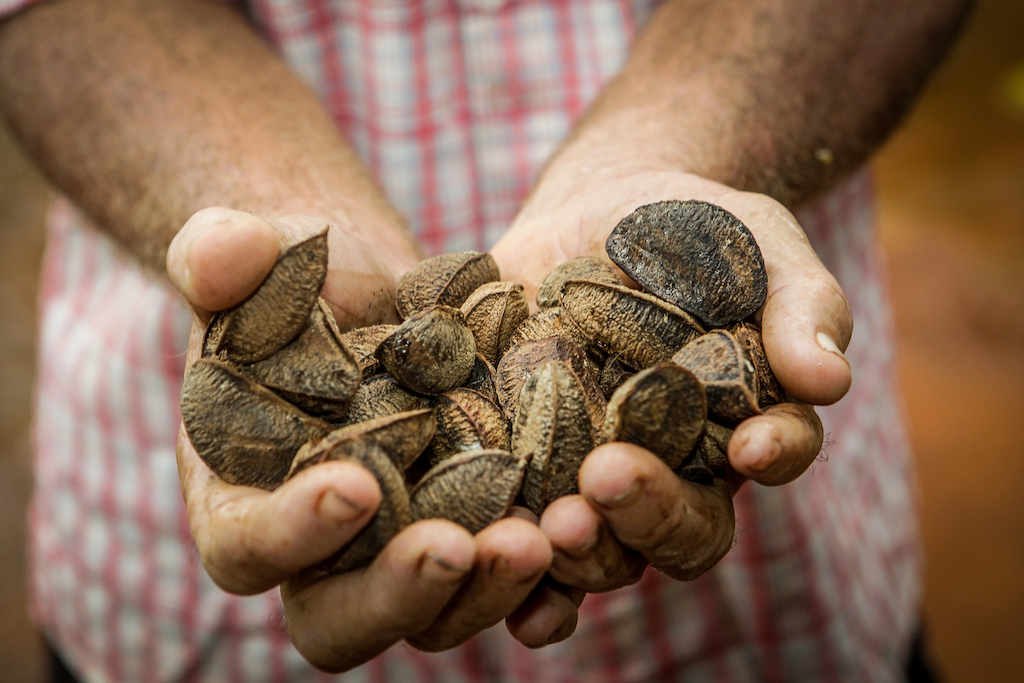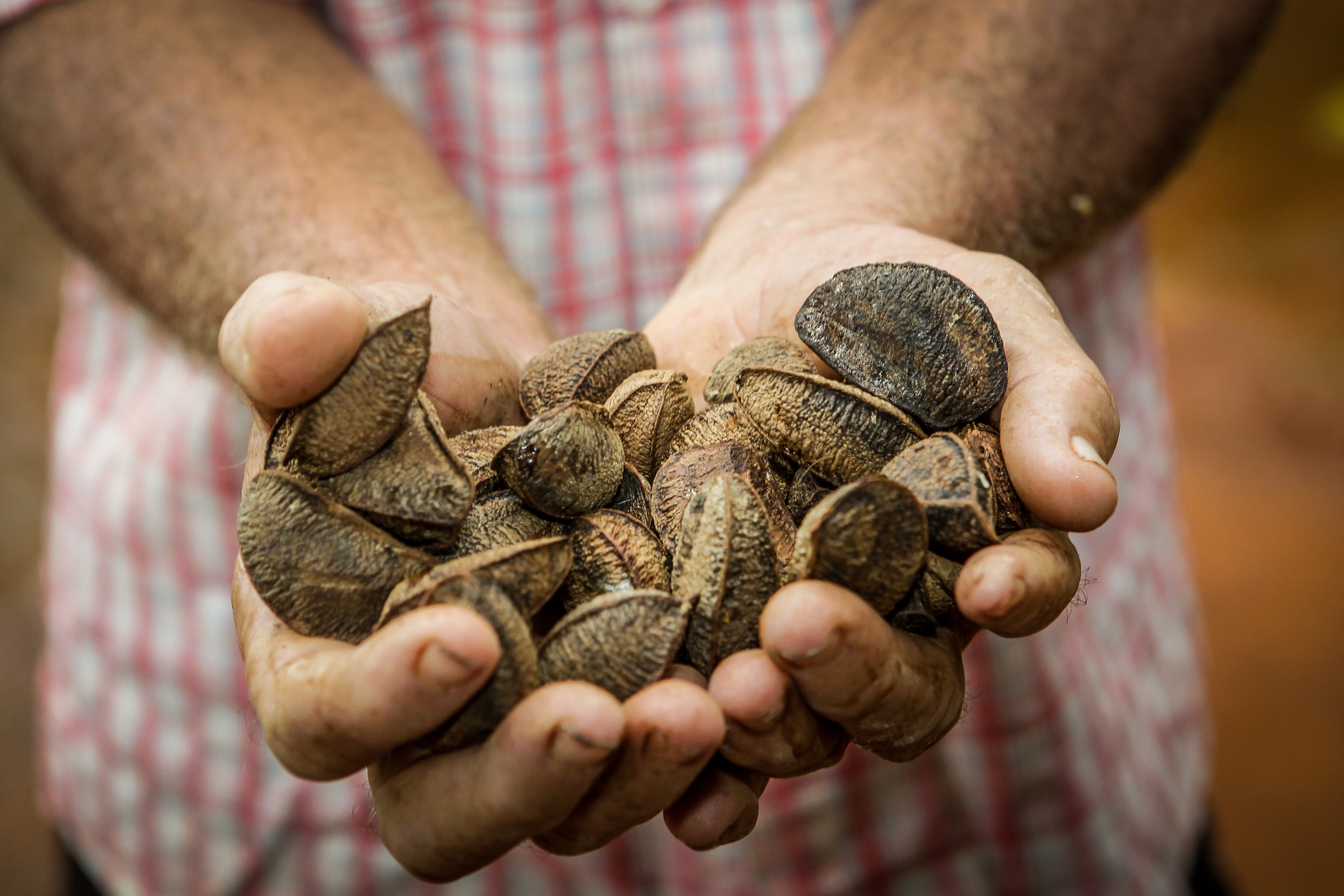
How many pounds make a good crop of Brazil nuts? The Xikrin and Parakanã indigenous peoples in the Amazon are trying to figure this out. In these communities, people are creating a sustainable product chain of organic Brazil nuts, collected and processed inside these two indigenous owned lands.
( from a report by Grace Menck Figueroa, Eduardo Vieira Barnes, Luciana Lima-TNC)
Indigenous communities own or manage more than 25% of the Earth’s land surface. And, forests managed by indigenous communities are some of the best protected in the world. This ancient relationship between people and their forest home remains fluid, changed across generations and continually shaped by the pressures and demands of a modern world.
How many pounds make a good crop of Brazil nuts? The Xikrin and Parakanã indigenous peoples in the Amazon are trying to figure this out. In these communities, people are creating a sustainable product chain of organic Brazil nuts, collected and processed inside these two indigenous- owned lands. In addition to the essentials, community members are taking courses and workshops focused on business administration to improve the management and distribution of Brazil nuts.
This initiative is part of the Implementing Environmental Management in Indigenous Lands project (IGATI) being led by The Nature Conservancy with support from the Amazon Fund/BNDES, and in partnership with National Indian Foundation (FUNAI). The project works to strengthen indigenous organizations to help improve land management protocols, support initiatives which promote sustainable development, and includes monitoring efforts undertaken by the indigenous communities themselves.

The education initiative is contributing to improving incomes for families in the Trincheira-Bacajá and Apyterewa indigenous lands, while helping strengthen the leadership of indigenous people in land management. Prior to this project, the communities used to collect nuts and sell them to a middleman for a low price. They didn’t have the right infrastructure to store and process the nuts themselves. Now, the Xikrin and Parakanã people have constructed storehouses to process and stock the Brazil nuts. That means they can now sell them for a better price with improved control of the production processes. These indigenous organizations are also responsible for selling the nuts to distribution cooperatives and companies. One company is a large bread manufacturing corporation in São Paulo that produces 60 thousand loaves of bread per day using the Xikrin’s nut as one of the main ingredients.
By taking out the middleman from this process the indigenous communities get more value for their product. “With better value of Brazil nuts and a better price, our culture and our forest are strengthened,” says Kabetum Xikrin, a store operator or “paoleiro”.
This initiative, as well as generating income through a sustainable supply chain, is also conserving and protecting the forest, and maintaining cultural traditions.